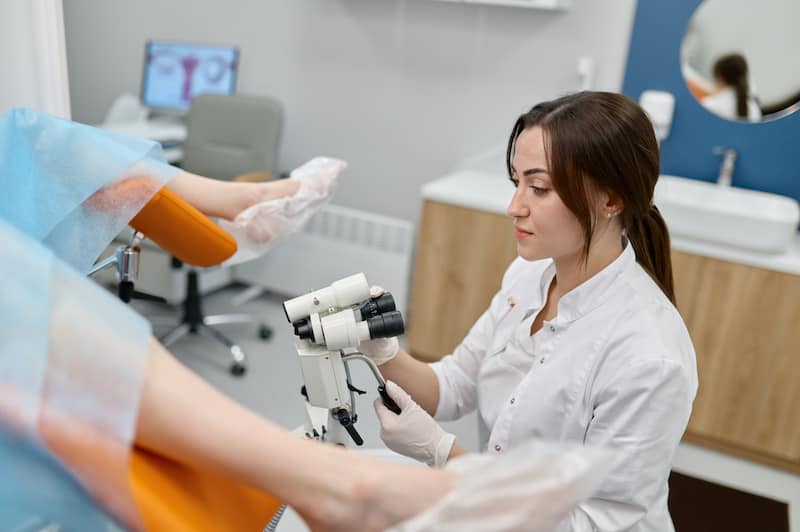Congratulations on your pregnancy! Your first prenatal appointment is an exciting and important milestone in your journey towards motherhood. As a first-time mother in Singapore, you may have many pressing questions and concerns about what to expect during this initial visit. To help you prepare for this significant step, we’ve created a comprehensive guide covering eleven essential subtopics to discuss with your doctor during your first prenatal appointment. Along with these subtopics, we’ve included unique questions to ask for each section, ensuring you feel informed and confident throughout your pregnancy journey.
Entering motherhood can be an overwhelming experience, especially for first-time mothers. Being well-prepared for your first prenatal visit will not only help alleviate some of the stress and uncertainties but also set a strong foundation for a healthy pregnancy. By actively engaging with your healthcare provider and addressing various aspects of your pregnancy, from medical history and lifestyle recommendations to financial matters, you’ll be better equipped to make informed decisions for both you and your baby. So, let’s get started and set the stage for a smooth transition into motherhood!

1. Understanding the Basics of Pregnancy Care
Pregnancy care is crucial for ensuring the well-being of both you and your baby. During your first prenatal visit, your doctor will provide information on prenatal care, appointments, and general guidelines to follow throughout your pregnancy. It’s essential to understand these basics to ensure a healthy pregnancy and minimize complications.
Some important questions to ask during your first pregnancy checkup include:
- How often should I schedule prenatal appointments?
- What tests and screenings will be performed throughout my pregnancy?
- What are some warning signs or symptoms that warrant a medical emergency or immediate attention?
- How can I reach you or the care team after hours if needed?
- What resources or prenatal classes do you recommend for first-time mothers?
2. Estimating Your Due Date
One of the most exciting aspects of your first prenatal appointment is learning your estimated due date. This helps you and your doctor monitor your baby’s growth and development and plan for labour and delivery. Keep in mind that the due date is just an estimate, and many women deliver within two weeks before or after the expected date.
Questions related to estimating your due date:
- How is my due date calculated, and how accurate is it?
- What factors can affect my due dates, such as cycle length or irregular periods?
- How will you monitor my baby’s growth and development throughout pregnancy?
- If my baby is not born by the due date, when would you consider inducing labour?
- How will my prenatal appointments change as I approach my due date?
3. Discussing Your Medical and Family History
Your medical history and family background play a crucial role in determining any risk factors or potential complications during pregnancy. During your first prenatal visit, be prepared to discuss your pre-pregnancy health, medical conditions, and any genetic disorders or high-risk factors that may run in your family.
Questions about medical and family history include:
- Are there any specific concerns or risks based on my medical history and ethnic background?
- How might existing medical conditions, like diabetes or high blood pressure, affect my pregnancy?
- What steps can I take to minimize the risk of passing on genetic disorders to my baby?
- Should my partner and I undergo genetic testing or counselling?
- How can I obtain more information about my family’s health history if it is unknown or incomplete?
4. Nutrition and Lifestyle Recommendations
Maintaining a healthy lifestyle throughout pregnancy is vital for both you and your baby. Your doctor will discuss essential aspects such as diet, exercise, and other lifestyle changes to ensure a safe and healthy pregnancy. Prenatal vitamins, supplements, and weight gain recommendations will also be addressed during this discussion.
Nutrition and lifestyle-related questions to ask:
- What should my daily caloric intake be, and how much weight should I gain based on my pre-pregnancy weight?
- What foods should I avoid or limit, and what nutrients are particularly important for pregnant women?
- Are there any specific exercises or activities that are safe and beneficial during pregnancy?
- Can you provide guidance on managing stress and maintaining emotional well-being during pregnancy?
- Are there any over-the-counter medications, supplements, or beauty products that I should avoid?
5. Prenatal Screening and Diagnostic Tests
Prenatal screenings and diagnostic tests help identify any potential health issues or birth defects in your baby. During your first prenatal visit, your doctor will discuss the various tests available, their purpose, and the ideal timing for each test. It’s essential to understand these tests and make informed decisions based on your specific needs and circumstances.
Questions related to prenatal screening and diagnostic tests:
- What are the standard prenatal screenings and tests, and when should they be performed?
- Are there any additional tests you recommend based on my risk factors or family history?
- What is the difference between a screening test and a diagnostic test?
- How accurate are these tests, and what are the potential risks or complications involved?
- If a test result indicates a potential issue, what are the next steps, and what support is available?

6. Managing Pregnancy Symptoms and Discomforts
Pregnancy can bring various symptoms and discomforts, such as morning sickness, fatigue, and body aches. During your first prenatal visit, your doctor will discuss ways to manage these common conditions and provide guidance on when to seek medical attention.
Questions about managing pregnancy symptoms and discomforts:
- What are some effective remedies or strategies for coping with morning sickness?
- How can I alleviate common pregnancy-related discomforts, such as backaches and leg cramps?
- Are there any signs or symptoms that may indicate a more serious issue or complication?
- What over-the-counter medications or treatments are safe to use for pain relief during pregnancy?
- How can I ensure a good sleep routine and manage fatigue during pregnancy?
7. Medications and Vaccinations During Pregnancy
Certain medications and vaccinations are essential for a healthy pregnancy, while others may pose risks to you or your baby. During your first prenatal appointment, your doctor will review any current medications you’re taking and discuss any necessary adjustments or alternatives.
Questions about medications and vaccinations during pregnancy:
- Are my current medication prescriptions safe to continue during pregnancy, or do I need to make changes?
- Are there any over-the-counter medications that are safe to take during pregnancy?
- Which vaccines are recommended or required during pregnancy, and when should I receive them?
- If I experience pain or discomfort, what pain medications are safe to take during pregnancy?
- Are there any specific medications or supplements that can help prevent or manage gestational diabetes or high blood pressure?
8. Monitoring Your Baby’s Growth and Development
Throughout your pregnancy, your doctor will closely monitor your baby’s growth and development. This includes regular prenatal appointments, ultrasounds, and additional tests as needed. Understanding the various milestones and stages of fetal development can help you feel more connected to your baby and better prepared for parenthood.
Questions about monitoring your baby’s growth and development:
- What are the key milestones in my baby’s growth and development during pregnancy?
- How often will I have ultrasounds, and what information can they provide?
- When can I expect to hear my baby’s heartbeat for the first time?
- Are there any signs or symptoms I should watch for that may indicate a problem with my baby’s growth or development?
- Can you recommend any resources or tools for tracking my baby’s progress throughout pregnancy?
9. Preparing for Labor and Delivery
As your due date approaches, it’s essential to start preparing for labour and delivery. During your prenatal appointments, your doctor will discuss your birth plan, pain management options, and any potential complications or interventions that may arise.
Questions about preparing for labour and delivery:
- When should I start creating a birth plan, and what factors should I consider?
- What are the different pain management options available during labor, such as epidurals or natural methods?
- Under what circumstances would a C-section be recommended or required?
- How can I prepare for the possibility of preterm labour or other unexpected complications?
- Can you recommend any childbirth classes or resources to help me feel more prepared?
10. Postpartum Care and Breastfeeding Support
After giving birth, proper postpartum care and breastfeeding support are crucial for both you and your baby. Your doctor will discuss postpartum care, recovery, and the benefits of breastfeeding during your prenatal appointments. It’s essential to understand what to expect during this period and how to access resources and support as needed.
Questions about postpartum care and breastfeeding support:
- What does postpartum care typically involve, and how long should I expect the recovery process to take?
- What are some common postpartum complications or concerns, and how can I recognize and address them?
- How can I ensure a successful breastfeeding experience, and when should I seek help if I’m having difficulties?
- Are there any specific postpartum exercises or activities that can aid my recovery and overall well-being?
- Can you recommend any local support groups or resources for new mothers and breastfeeding assistance?
11. Fees, Grants, and Insurance
Navigating the financial aspects of pregnancy and childbirth is an important consideration for first-time mothers in Singapore. Understanding the fees associated with prenatal care, delivery, and postpartum services, as well as the available grants and insurance options, can help alleviate financial stress and ensure you receive the best possible care.
Questions about fees, grants, and insurance:
- What are the estimated costs for prenatal appointments, tests, and ultrasounds throughout my pregnancy?
- Can you provide a breakdown of the expected fees for various delivery options, such as natural birth, C-section, or using pain management methods like epidurals?
- Are there any government grants, subsidies, or financial assistance programs available for expectant mothers in Singapore, and how can I apply for them?
- How do different insurance plans cover pregnancy-related expenses, and what factors should I consider when choosing a plan?
- Are there any additional or hidden fees that I should be aware of, such as hospital stays, postpartum care, or breastfeeding support services?

In Conclusion
In conclusion, your first prenatal visit is an essential step in ensuring a safe and healthy pregnancy. By asking these questions during your first pregnancy checkup, you’ll gain valuable knowledge and feel more confident throughout your pregnancy journey. Being well-informed about various aspects of your pregnancy, from prenatal care and medical history to financial considerations, helps you make the best decisions for both you and your baby. Remember, your doctor is there to support and guide you, so don’t hesitate to ask any additional questions or share any concerns you may have.
As you progress through your pregnancy, make sure to maintain open communication with your healthcare provider and continue to seek guidance on any new developments or concerns that may arise. Your prenatal appointments are not only essential for monitoring your baby’s growth and development but also for addressing your physical, emotional, and financial well-being. By actively engaging in these discussions, you’ll be better prepared for the exciting journey ahead and set the stage for a happy and healthy transition into motherhood.








